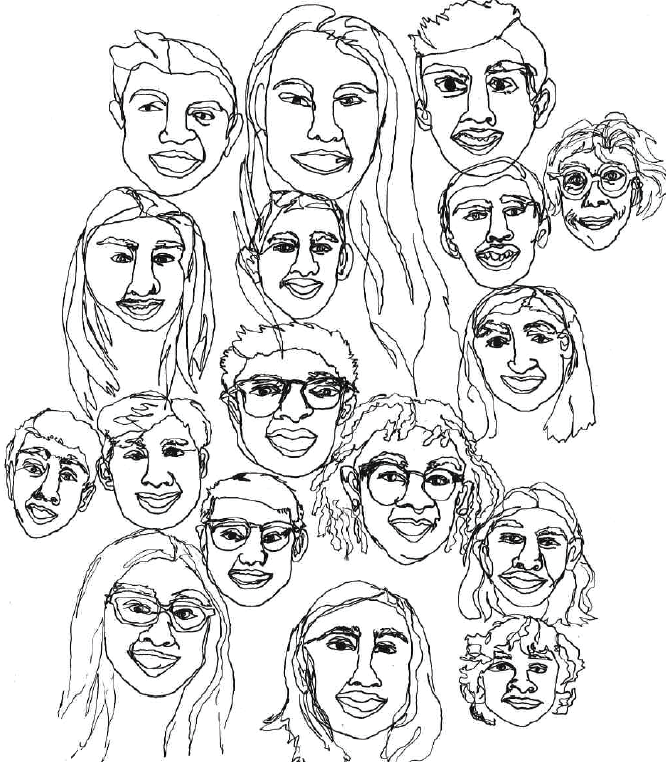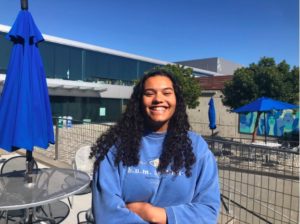We often associate climate change with future scenes of cataclysmic, universal disaster: rising oceans, leveled forests, a planet ablaze. But this oversimplification doesn’t reflect the whole reality of our climate crisis.
The way we talk about climate change needs to reflect the fact that climate change is now— it has current implications, especially for marginalized and vulnerable communities.
This issue of the Paper Tiger is climate-focused, and our staff acknowledges that as individuals and as a part of the media community we play a role in shaping the dialogue around this issue. And because of the often understated intersectionality of climate change, this isn’t a responsibility we take lightly. The rhetoric we use in discussing climate change, intentional or not, is consequential. We therefore must portray climate change as what it is: current, dire, and inextricably related to issues of human suffering.
We know that, according to the Intergovernmental Panel on Climate Change, we have less than 11 years to avoid potentially irreversible climate disruption. But in the panic of counting down to some arbitrary date, being solely future-focused, we equivocate our responsibility to the present and ignore the voices that need to be heard the most.
Climate change has already caused irreversible destruction. While we will all eventually be affected by the conditions of a warming planet, people are suffering now. Climate change is killing people now. It is now causing wars. It is now destroying livelihoods and separating families and causing lifelong trauma.
But instead of focusing on people, we often let ourselves fixate on what is cute and symbolic. When we relate climate change solely to that baby polar bear on a thin shard of ice, we run the risk of ignoring the injustices in our own state and the suffering of our own neighbors — on what we can and must do in our own place and moment.
Our neighbors in Richmond, California, a city only a BART ride from school, have suffered some of the more atrocious effects of climate injustice. The community of Richmond is over 60 percent people of color, and the percentage of people living under the poverty line is higher than the US average, according to the US census. The multi-billion dollar oil company Chevron has been operating a refinery in Richmond for decades, where they store over 11 million pounds of toxic, explosive chemicals. When these are accidentally released into the surrounding area, these chemicals put nearby residents in critical danger.
Chevron’s crimes are often overlooked because of the company’s power and wealth. It’s an example of government refusing to acknowledge everyday people, prioritizing special interests over the community they supposedly represent, as well as the corporation’s profits over long term environmental degradation and the very viability of the community they endanger. This story serves as an example of the marginalized people who suffer when the disproportionate impacts of climate change are minimized. In order to include these communities in our definition of climate justice, it is imperative that we include them in our everyday discourse.
Our neighbors on the border are also directly suffering the repercussions of climate change. Central America, the region from which the largest number of refugees coming to the US flee, is greatly affected by environmental degradation. According to The Guardian, the “average temperature in Central America has increased by 0.5C since 1950; it is projected to rise another 1-2 degrees before 2050.” This warming changes fundamental weather patterns, decreases soil quality, increases crops’ susceptibility to disease, and leaves farmers unable to grow food to keep their families alive.
However, the suffering of these people and their hope is delegitimized by the rhetoric of those in power. The UN does not include those who flee their homes due to the repercussions of climate change in their definition of refugees, and so those people do not qualify for asylum status in the United States.
The very definition of refugees, a definition written by a powerful organization, prevents these people from finding safety and security.
Terminology matters. As a written publication, the Paper Tiger is especially attuned to the consequences of careless and inaccurate language. The language we choose to use in our discourse around this issue has drastic implications. It’s indicative of who we see as our neighbors and what injustices we see as worth fighting.
We urge the Lick-Wilmerding community to speak about climate change with a current and intersectional focus. Our thinking directs our approach to combating the issue. If we can talk about climate change more productively, we can act more productively, too.
We need to face reality, to be current and proximate. We can’t shy from truths through euphemisms or generalizations. The first step to combating injustice is correctly acknowledging that it exists. And if our language does not relay that, vulnerable communities will continue to suffer, and those cataclysmic predictions of the future will surely come true.







